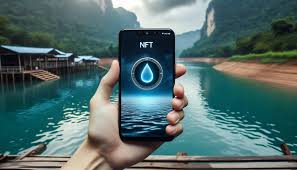IT IS YOUR MONEY
Digital Assets and RWA: Transforming How We Invest in Water Resources and Sustainability Projects
Water scarcity and infrastructure challenges are driving innovation in sustainable water management. Digital assets and real world assets (RWA) are playing a pivotal role by enabling tokenized investments in desalination plants, reservoirs, and watershed conservation projects that offer both financial returns and environmental impact.

Tokenizing Water Infrastructure for Investment Access
Municipal water utilities and private operators can tokenize water treatment plants, pipelines, and irrigation systems to raise capital from institutional and retail investors. This model supports infrastructure upgrades while providing investors with stable returns linked to essential services.
Real-Time Monitoring of Water Usage and Conservation Metrics
IoT-enabled smart meters and satellite tracking systems integrated with blockchain provide real-time data on water consumption, leakage rates, and conservation efforts. Investors can monitor performance and verify sustainability impact through transparent on-chain records.
Real-World Use Case: IBM’s Food Trust and Water Stewardship
IBM’s blockchain solutions have been applied to supply chain traceability, including water stewardship programs. By integrating digital assets and RWA, organizations can track water usage across agricultural and industrial sectors, supporting responsible resource allocation.
Creating Tradable Water Rights and Allocation Systems
In regions facing water shortages, digital assets and RWA can facilitate tradable water rights markets where users buy and sell access based on availability and demand. This enhances efficiency and encourages sustainable water use practices.
To discover how digital assets and RWA are reshaping water investment and sustainability strategies, reach out to specialists at DigitalAssets.Foundation for expert analysis and a FREE consultation.

More News
© 2026
